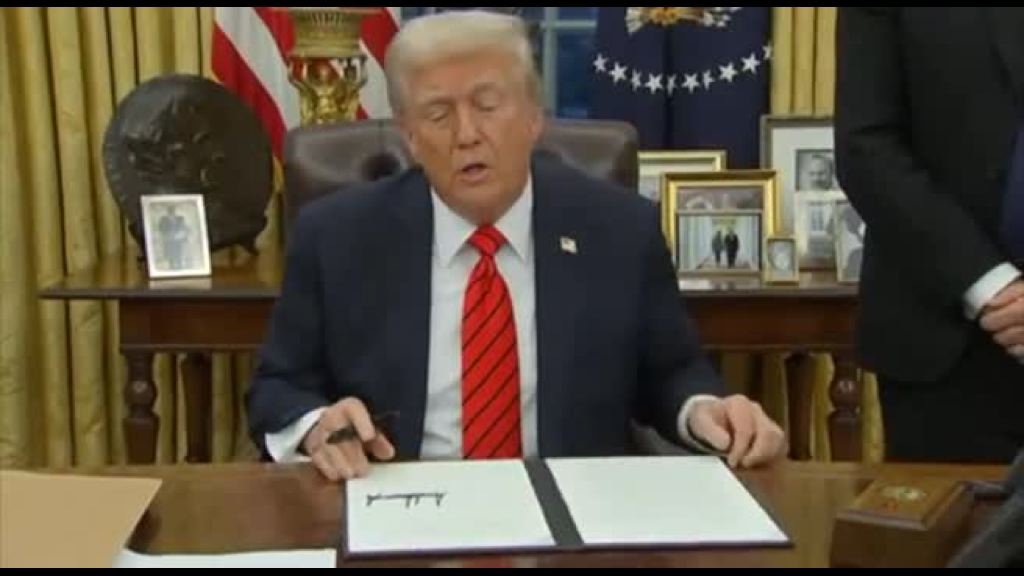Donald Trump made another U-turn on tariffs, delaying the imposition of duties on many goods from Canada and Mexico until April 2. However, the president stated that this decision “has nothing to do” with turbulence in the stock markets. On Wall Street, the S&P 500 fell by 1.8% on Thursday. “I’m not even looking at the market,” Trump said.
In fact, there are “no delays at all,” he told reporters in the Oval Office while signing the order postponing the tariffs.
Trump had already softened his stance against Canada and Mexico, granting a one-month reprieve to automakers—including the multinational manufacturing company, Stellantis—who had protested the severe disruptions they would face. Major retail companies had also raised concerns, warning consumers to prepare for significant price increases in supermarkets. Tariffs are not paid by the targeted countries but by importers—in this case, U.S. companies—who purchase products from businesses in the affected nations.
The first announcement concerned Mexico, following a phone call with President Claudia Sheinbaum. Trump posted on Truth Social that the southern neighbor would not, for now, pay tariffs on goods covered by the existing trade agreement between the United States, Mexico, and Canada, known as USMCA.
A few hours later, Trump signed an amendment extending the same exemption to Canada until April 2. He had previously attacked Canadian Prime Minister Justin Trudeau, accusing him of “using the tariff issue” to stay in office.
According to Trump, both neighbors— in the North and South—are guilty of not doing enough to stop the illegal trafficking of fentanyl (a major concern for Americans), and Mexico is also accused of not doing enough to curb the flow of migrants at the border.
Mexico continued negotiations with Trump, while Justin Trudeau’s Canada had announced two days ago the imposition of retaliatory tariffs on U.S. imports. On Wednesday night, the Mexican president praised a collaboration that has yielded “unprecedented results.” Following Trump’s announcement, she stated that the two governments would continue working together, “particularly on immigration and security issues, including reducing the illegal flow of fentanyl into the United States and weapons into Mexico.”
During his joint address to Congress on Tuesday night, Trump acknowledged that tariffs would cause some disruptions: “There will be some disturbance, but it will be minor.”
A brief timeline: Trump had promised to impose tariffs on Canada and Mexico from his first day back in the White House. However, once in office, he announced that he might introduce them starting in February. Last month, he granted both countries a last-minute one-month delay. Only last Tuesday did he finally proceed, imposing a 25% tariff on all goods from Mexico, 25% on most Canadian products, and 10% on Canadian energy products. He also doubled tariffs on Chinese exports, increasing them from 10% to 20%. Now, a new halt has been announced until April 2.












